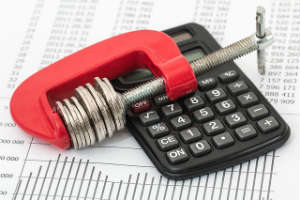Bankruptcy And Tax Season
Dealing with bankruptcy proceedings can create a stressful situation. Add filing your taxes and the anxiety only increases. Following a few tips can ensure you will be able to keep more of your refund while filing for bankruptcy. If you’re like everyone else, then you are probably looking forward to the extra money you get at tax time. You may be able to keep at least some of your refund and this will depend on when and how you file your taxes when contemplating or going through a bankruptcy.
How To Keep Your Tax Refund
If you know that you are going to be filing for bankruptcy, then you should file your taxes as soon as possible before doing so. When you receive your refund, you should spend down the money before filing for bankruptcy. This is referred to as proper exemption planning before filing for bankruptcy. Once you’ve spent the money, these are irreversible expenses. Once the money has been spent, you do not need to worry about forfeiting it in the bankruptcy.
There may be times when you need to file for bankruptcy before you receive your tax refund. This can happen if you are dealing with a garnishment, foreclosure or repossession. During such situations, a bankruptcy filing is urgent. Your refund will then become an asset of the bankruptcy estate. You may be able to exempt a certain amount of your refund. However, you need to know the amount you can exempt, as well as an estimate of your expected refund.
Chapter 7 Versus Chapter 13
Taxes are dealt with very differently depending on the type of bankruptcy filing you choose. If you are proceeding with a Chapter 7 bankruptcy and you can get your tax refund before filing, then you should spend the money before filing for bankruptcy. Once the money is spent, you are not responsible for making it a part of the bankruptcy estate. However, if you’re filing for Chapter 13 bankruptcy, any tax refund you receive is considered additional monthly disposable income. With a Chapter 13, you are required to report all your monthly disposable income to your trustee and make payments towards your debts. A certain amount may be exempted which will allow you to keep a portion of your tax money without filing a motion. However, if you wish to retain more than the exempted amount, your trustee will want a detailed explanation of why you need more than the exempted amount. Your reasons for keeping more than the exempted amount must be legitimate, such as for car repairs or other emergency expenses.
Tips For Bankruptcy Filers
Knowing how to handle your taxes during bankruptcy proceedings can mean the difference between you keeping your refund or losing it to the bankruptcy estate.
- The first thing you should do is consult with an experienced bankruptcy attorney. Inform the attorney if you have filed your taxes for the past three years.
- If you haven’t filed for bankruptcy, then you should file your income tax return. Spend your refund as soon as you get it so that it doesn’t become part of the bankruptcy estate in a Chapter 7 case.
- If you must file for bankruptcy before you get your refund, you must provide your attorney with all tax records as well as an explanation of tax refund expenditures, if any.
- Do not use your refund to pay bills before filing. Doing so will delay your bankruptcy case.
There are many uncertainties when filing for bankruptcy and also taking care of your taxes. It is always wise to consult an experienced attorney who can provide you with sound advice and guide you in the right direction.


